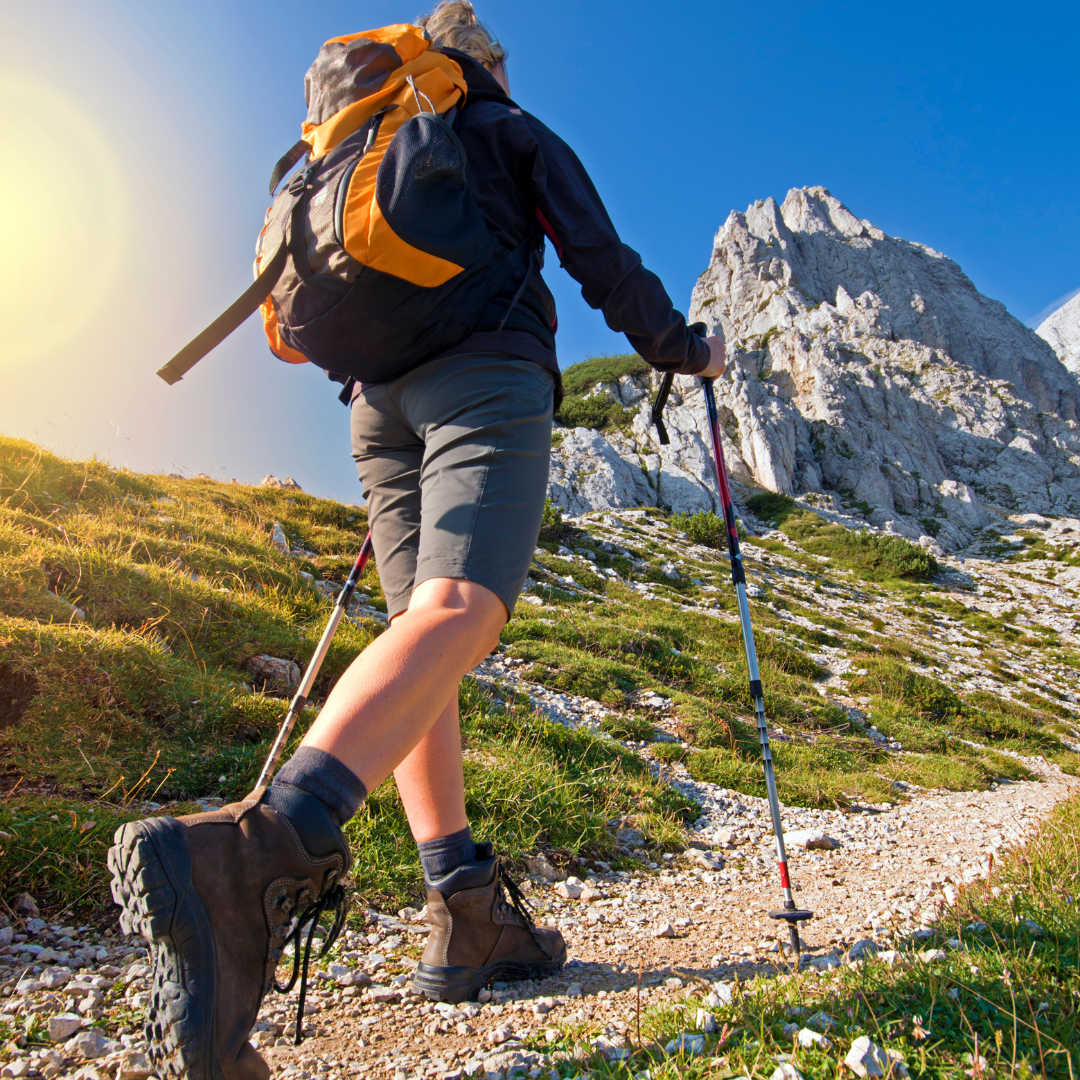Hiking for Beginners: 10 Essential Tips
Hiking is a great way to get outdoors and enjoy the beauty of nature. However, if you’re new to hiking, it’s important to be prepared.
Here are 10 essential tips for hiking beginners:
Be physically ready
Hiking is a great way to get some exercise and enjoy the outdoors, but it’s important to be physically ready before you hit the trail. Here are a few things to keep in mind to make sure you’re physically prepared for your hike.
- First, make sure you have the proper gear. Good shoes are a must, and if you’re hiking in a remote area, you should pack a first-aid kit and plenty of water.
- Second, know your limits. Start with a shorter trail and then slowly work your way up to the longer ones. Don’t try to do too much too soon, or you’ll end up exhausted and sore.
- Finally, listen to your body. If you start to feel fatigued, take a break. And if you have any pre-existing medical conditions, be sure to consult your doctor before heading out on the trail.
By following these simple tips, you can make sure you’re physically ready for your trail.
When going on a hiking trip, consider exploring blogs and articles describing past experiences of expert hikers to get some important pointers. For instance, you can visit Bergwelten or a similar website to get tips and tricks for trekking through the Alps. You can get suggestions such as preparing your feet and ankles for exertion with the help of a massage roller; stretching and basic exercises to do while hiking; choosing proper shoes; and more.
Be mentally ready
You’re physically ready for the hike, but are you mentally prepared? Here are a few things to keep in mind to make sure you’re in the right frame of mind for a successful hike.
- First and foremost, it’s important to have realistic expectations. If you’re setting out to hike the Appalachian Trail, you need to be prepared for a long, difficult journey. It’s important to be mentally and emotionally prepared for your challenges.
- Second, be prepared to face setbacks. No matter how well you plan, there will always be unexpected obstacles along the way. Be flexible and adaptable, and don’t get discouraged if things don’t go according to plan.
- Finally, remember to enjoy the journey. Yes, the destination is important, but it’s also important to savor the experience of being out in nature, away from the hustle and bustle of the city.
Research the hiking trail
There are many factors to consider when choosing a hiking trail.
When choosing a hiking trail, one important factor is your fitness level. You may want to consider a shorter or less strenuous trail if you are not very active. Another important factor to consider is the weather conditions. If it is very hot or humid, you may want to avoid strenuous trails or ones with little shade.
Dress appropriately
One of the most important things to consider when going on a hike is what you’re going to wear. It’s important to have comfortable, loose-fitting clothes and sturdy shoes to make sure you have a safe and enjoyable experience. If you need to purchase anything ahead of starting your hiking journey, make sure to search online to see if there is an outdoor look discount code, or a code for any brand in particular you like, to help you save some money on your new gear so that you can be confident you look the part.
Bring plenty of water and snacks
It’s important to stay hydrated and fuelled while hiking. Whether you’re an experienced hiker or just starting out, bringing plenty of water and snacks with you when hitting the trails is always important. Not only will it keep you hydrated and fuelled, but it can also help you avoid potential hazards like heat stroke or hypoglycemia.
Be prepared for emergencies
Pack a first-aid kit. Be prepared for the worst. If you get lost, injured, or stranded, knowing how to handle the situation properly can mean the difference between life and death. Make sure to be ready for any possible untoward emergencies on the trail.
Leave your valuables at home
Don’t bring anything with you that you wouldn’t want to lose. Just bring the things that you really need for the hike.
Respect the wildlife
Don’t approach or feed any animals you encounter on the trail. Respect nature and do not leave garbage around.
Bring a map
There are few things more frustrating than getting lost on a hike. Whether you’re an experienced hiker or a novice, bringing a map on your hike is always a good idea. A map can help you find your way back if you get lost and also help you plan your route.
If you’re planning a hike, be sure to stop by your local bookstore or outdoor shop to pick up a map of the area. If you’re hiking in a popular area, there are likely to be plenty of maps available. But if you’re hiking in a less popular area, you may need to do some research to find a map.
Once you have your map, take some time to familiarize yourself with it before you head out on your hike. Pay attention to landmarks and note any potential hazards. And most importantly, don’t forget to bring your map with you when you hit the trail!
Have a good hike buddy.
When you go for a hike, it’s always best to have a good buddy. There are many benefits to having a hike buddy, including safety in numbers, someone to help you with directions, and someone to take pictures for you.
Here are a few tips for finding a good hike buddy:
- First, try to find someone familiar with the area you’ll be hiking in. This way, they’ll be able to help you with directions if you get lost.
- Second, having someone with you in good physical shape is always a good idea. This way, they can help you if you need it.
- Finally, try to find someone who is good-natured and easy to get along with.
This way, you’ll have a good time on your hike!

